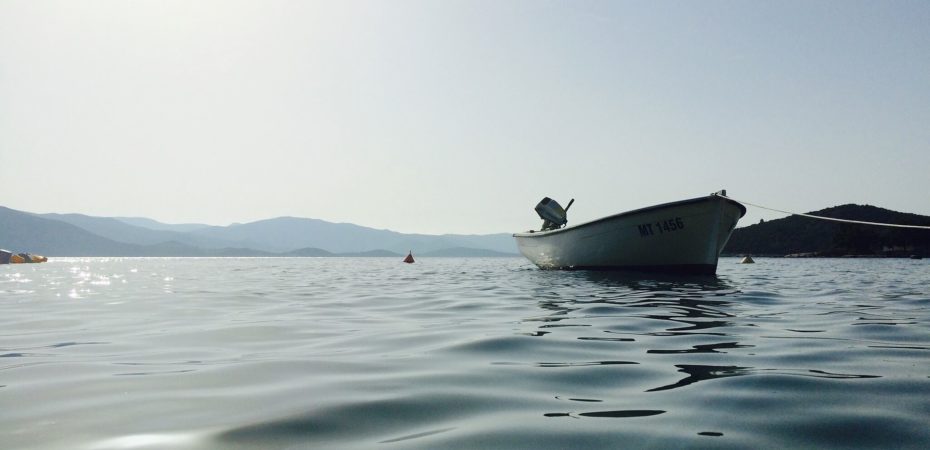Today’s post is from one of our Summer School community. Emer Emily Neenan is an Irish Research Council Postgraduate Scholar at the Trinity Long Room Hub and the School of Education at Trinity College Dublin, Ireland. Her doctoral research is looking at earth science education in Irish secondary school using a children’s rights based methodology.
You never really know what you’ll get out of something. You might make an educated guess. This class will give me a particular skill; that seminar will give me an interesting perspective; the wine reception will probably give me a free glass of wine. But you don’t know for sure until you go.
We’re more than halfway through the 2019 LERU doctoral summer school and starting to find out what we’re each getting out of it. All of us knew we would get our names on the Guide To Collaboration, and it was an easy guess to expect that we would gain connections to our network, maybe even friends. We knew going in that this was an opportunity.
Before we arrived at the summer school, each of us interviewed an academic on the topic of collaboration. During that interview, the senior academic I interviewed emphasised the importance of taking opportunities, for collaborations and for career advancement. She used the LERU summer school itself as an example. She suggested the kind of student who sees an email going around asking for applications and puts themselves forward for consideration is the kind of student who will end up working on exciting and useful collaborations. Because success always hinges on exploiting an opportunity.
This is a crucial point in our Guide to Collaboration. How do you get started in a collaboration? How do you grow your network to open yourself to collaboration? How do you achieve your personal goals in a collaboration? Same answer: You make the most of opportunities.
It’s something that’s come up again and again as we listen to speakers and work with the imparted wisdom from dozens of interviews:
Be curious.
Put yourself out there.
Make connections.
All things we did to get to the summer school. All things we’re doing at the summer school. All things we’re learning to do after the summer school, to build the kind of collaborations we want.
Much like the meta-exercise of collaboratively writing a guide to collaboration (a collaborative collaborative guide), we’re all engaged in an opportunity of opportunities, learning about opportunities.
Personally I think one of the trickiest parts is identifying opportunities in the first place. Some are practically gift-wrapped; perhaps a trusted mentor introduces you to a potential collaborator and they offer you a specific role. Anyone can see that’s an opportunity. But most opportunities aren’t like that. You have to learn how to spot them (is that unassuming poster asking for contributions actually a great way to meet people in my field?), how to weigh them (is that symposium going to be full of potential new connections or will the only attendees be a handful of the usual suspects?), and how to prioritise them (is that summer school in Edinburgh worth a week of my time or would that time be better spent on research?).
That latter point is something else that’s come up a few times in discussions this week and in interviews: Use your opportunities wisely. Don’t spread yourself too thin. If you can only manage a small number of “extracurriculars” then make them count.
So take opportunities. You don’t know for sure how they’ll work out. Some will fail. Some will give you the bare minimum; you can put it on your CV. Some will open new doors. Some will lead to great things. Maybe one of them will – as has happened to some of the speakers this week – introduce you to a wonderful, inspiring friend, with whom you’ll write books, and travel with, and spend decades talking to about anything and everything. Maybe there’s a future friendship of a lifetime in the making right now, and the friends will look back fondly in years to come on the day they met at the 2019 LERU summer school!
And make opportunities. The academic I interviewed emphasised how happy she was to talk to early career researchers, but how she couldn’t possibly know what their research was or who they were. It’s on them to approach her. It’s on you to approach the person you want to collaborate with, or ask questions of, or start a friendship with.
It’s on us to make the most of this summer school. To listen, to talk. To be curious and put ourselves out there and make connections.
Because that’s the thing about opportunities. The amazing thing they lead to is more opportunities. They may or may not also lead to a static reward – a payment, a prize, a line on the CV. A Guide to Collaboration we can be proud of. But the best opportunities lead to bigger and better opportunities. An email asking for applications leads to meeting the Dean of your university, which leads to a place on a doctoral summer school in Edinburgh, which leads to meeting a whole host of other early career researchers and expert speakers, which leads to… what next?
We’re finding out.



It was great to meet you Emer! I think the key to finding opportunities is to be visible to others – online, on committees, at events as a presenter and attendee, as a mentor to others.
If you follow the right people and organisations on Twitter, for example, you’ll get up to date news of upcoming events and funding opportunities that you can use as networking opportunities. From networking opportunities come opportunities for collaboration.
Be an active user of Twitter/Linkedin yourself, and refer opportunities to other people in your network. You’ll find that, in time, your network starts doing that for you in return.
Good luck!